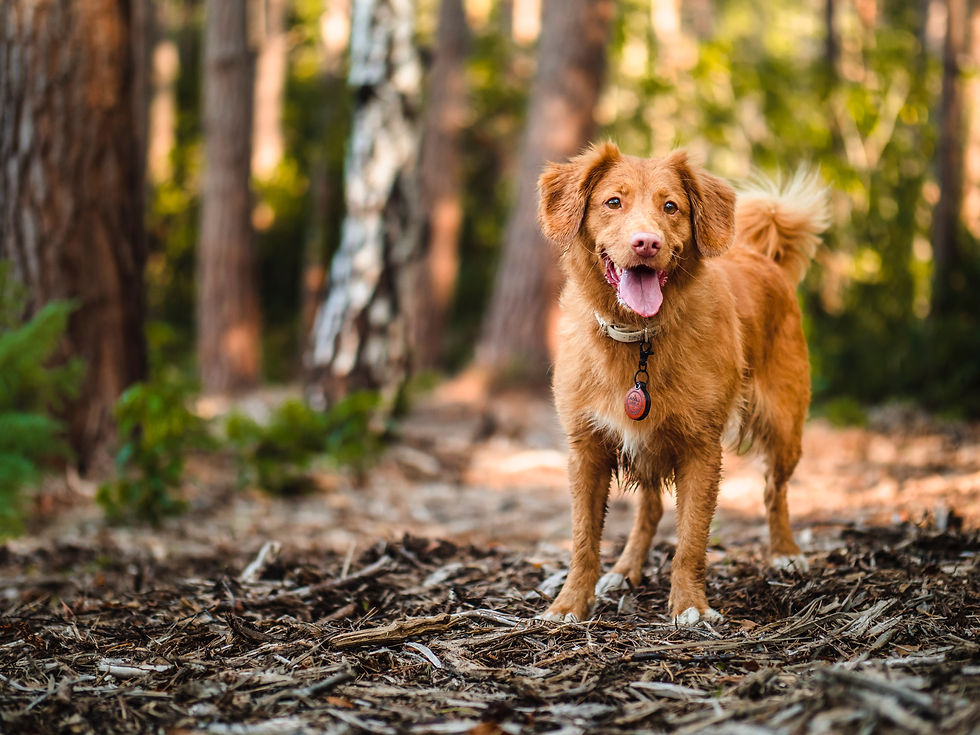Improving The Lives of Reactive Dogs and their Owners- A Plea to Other Owners!
- Jasmin Mason

- Mar 19, 2021
- 4 min read
There are so many difficulties that come with owning a reactive dog. Challenging behaviours aside, working with distressed, frustrated and anxious animals has an emotional toll. From my own experience, many owners of difficult dogs are incredibly empathetic- experiencing the same stress that their dog does day in, day out. We can put in as much work as possible, through management, training, behaviour modification and lifestyle changes- but there are some things we can’t control and one of those is the behaviour of other dogs and their owners.
We are fortunate that the majority of dog owners are understanding, responsible and considerate however we can all do more to better improve the lives of reactive dogs- even if we don’t live with them! Responsible dog ownership, and dog park etiquette calls for keeping your dog on lead, if you see another dog also on lead. It may be because they have poor recall, it may be because they are injured, but it may also be because they struggle with the world around them. So what else can you do?

Learn to read dog body language. Understanding how to ‘speak dog’, and read their body language completely transformed my world. Whilst I was able to better read my own dogs, I saw others dogs in an entirely different light and was able to better meet their needs, and ensure that they were comfortable. By understanding body language, in particular stress and calming signals- we can accommodate other dogs and change our own behaviour based on their response.
IGNORE! I know many reactive dog owners dream of this. Staring at other dogs, attempting to greet them, talk to them, pet them, can put a lot of pressure on them and their attempts to let us know they’re uncomfortable often go unnoticed. As a general rule of thumb, ignoring the dog allows them to process you and the rest of the environment at their own pace.
Teach your dog a good recall. It’s understandable- there may be moments where you don’t see someone coming round the corner with their dog on lead, these things happen! But we need to be prepared, and acknowledge that not every dog wants to be greeted. By teaching your dog a rapid recall, we can get them back quickly and limit our disturbance to other people’s training.
Don’t judge- we never know what’s going on in someone’s life, what has happened to their dog (if anything at all) and the issues that they’re struggling with. Judging (even from afar) does nothing but create and reinforce stigma around difficult dogs, isolate people, and dampen their desire to get their dog out and train.
Encouragement. Reactive dog owners can often struggle to see the successes and transformations happening right in front of their eyes. Well, anyone really, it’s hard to see your progress without taking a step back! A kind word can make an incredible difference. When I’m walking down the street and training my dogs, I love to hear encouragement from strangers or the oohs and ahhs of familiar faces as they see all the progress we’re making. It makes the hard work so worth it! By encouraging other dog owners, supporting them, congratulating them on their hard work and success we can turn a bad day into a good one. We can boost morale. We can open up their world and stop them feeling isolated and alone, like they’re the only one working through this issue. So every so often, stop and share a kind word with a fellow dog owner (a thumbs up and a smile from afar will do!)
Respect their training process. From my own experience, many people have said “oh no it’s okay, just let them say hello!” which has often ended in tears. What works for one dog doesn’t always work for another, and if a fellow dog owner is working through a particular plan- respect that! Taking matters into your own hands can at best be stressful for the dog, and at worst, be detrimental to their progress. If you’re happy to help out- offer to work with your dog at a distance, allowing them to make their own choices, but let's avoid forced greetings.
Learn about reactivity- there are a billion and one factors impacting reactivity and yep you guessed it, simply being a ‘bad dog’ isn’t one of them. Having a basic understanding of the reasons behind reactive behaviour can improve your knowledge and your empathy towards other dog owners.
Give them space! Always air on the side of caution, and make sure that you're giving dogs all the space they need. Taking a wide berth (politely and without judgement!) is a much better choice then simply marching past and sending a dog over-threshold. The owner will thank you for it, I promise!
Learn about the yellow dog project- a project set up to raise awareness of dogs that need space. If you’re keen, do some raising awareness yourself! Even the tiniest little actions can have a big ripple effect on your local dog community.
Most importantly, be kind, be understanding, be supportive. This year alone has shown us we need that more than ever.


Comentarios